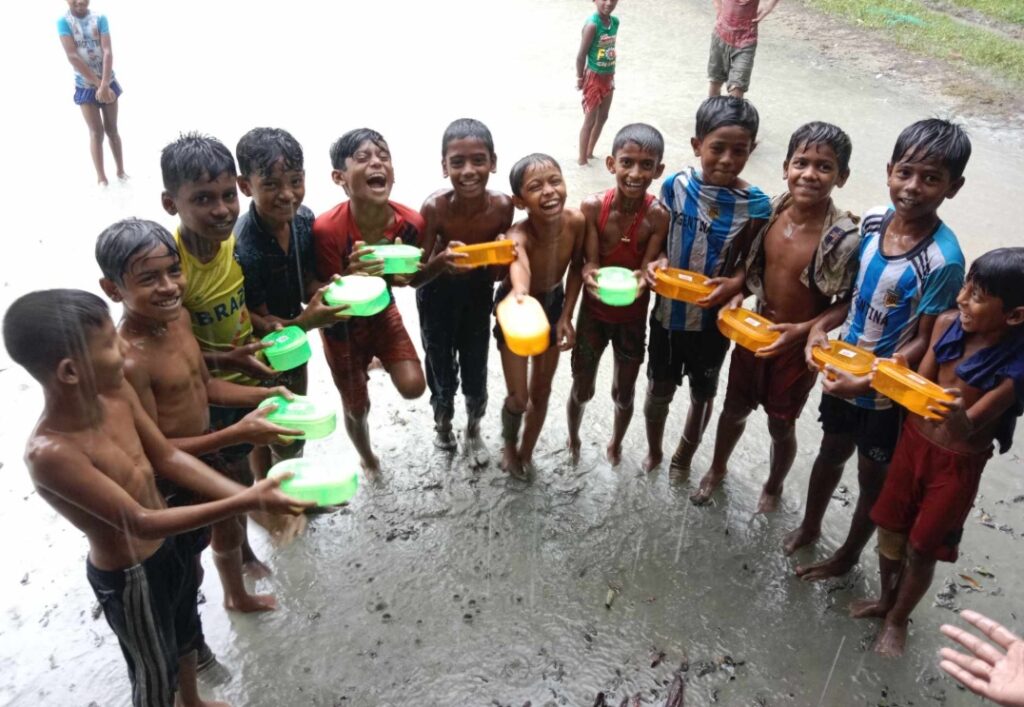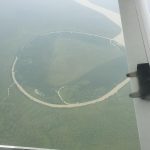Seriously wet as Shakti takes its toll

One of the reasons why Fred Hyde Schools operates in Char Fasson is because it isn’t easy. Life in this part of the world, barely a metre above sea level and where every second cloud stops by to rain, is incredibly wet and humid, rusting schools in double-quick time and making it hard for the government to hire teachers willing to work with their feet in mud.
But there are around 2 million people who call this ‘upazilla’ (or sub-district) home, and we’re here to fill the gaps the government can’t fill. As you can see from the photo of some of our boys in the wake of a recent football tournament, life is not always a muddy slog…and even when it is, it can be fun.
Just now it’s the middle of wet season and water levels in the mighty Meghna and Tetulia rivers which pass by this island to the right and left of it, respectively, have risen significantly due to the impact of Cyclone Shakti, putting much of our territory–Char Fasson Upazila–under 4 to 5 feet of water. Our schools are built up at least four feet above the prevailing land but that still means a number of our schools have had to close with the water so high, fish are being caught in the unplayable playgrounds.
As I write this, strong winds and tidal surges have placed approximately 6.4 kilometers of embankments (the dikes that protect the island, ringing its outer perimeter) at high risk, and trawlers have been called in to ports. Buses which are pushed to perform like four wheel drives in this area are struggling to get through, and many ferry services have stopped.
We’ve not had any reports of significant damage, even to our most exposed schools in the Bay of Bengal ‘lip’ area. I’m planning to head over in the next few weeks, hopefully when the rivers are back inside their banks, and all our kids are back to school.
Professor Olav Muurlink


